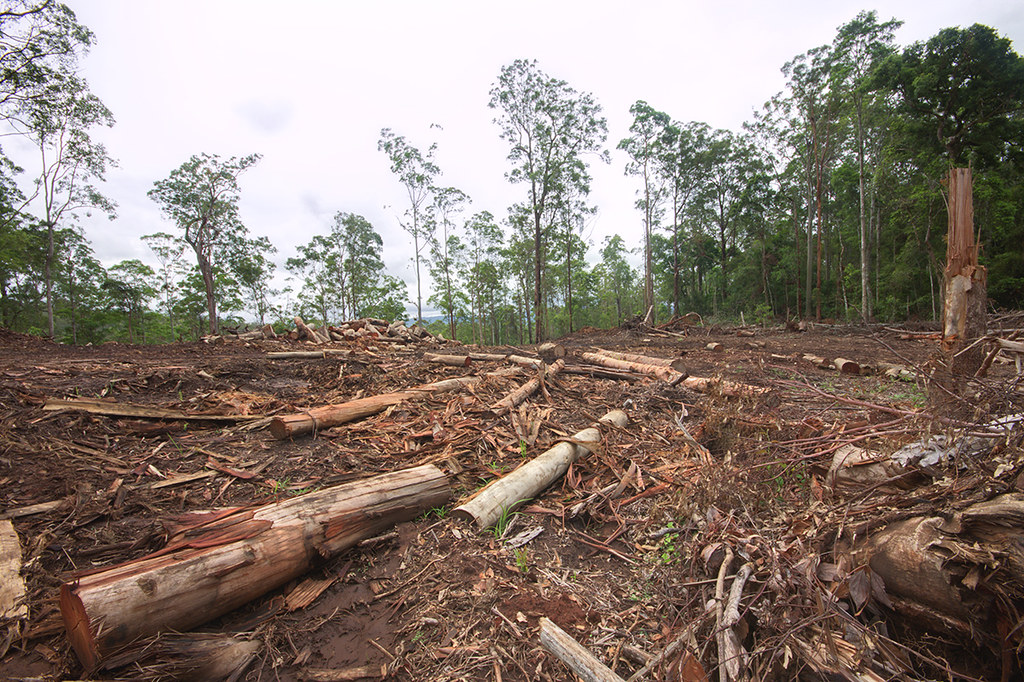The COP climate conference in Brazil, called the COP for Forests due to the closeness of the host city, Belém, to the Amazon, will focus investor attention on the importance of protecting and restoring tropical forests to address climate change. Investors will be watching for policy commitments from major governments, corporations (and investors themselves), in whose hands the fate of the world’s forests rests on.
The focus of deforestation campaigns, at COP and beyond, is usually on tropical forests in developing countries. Australia’s deforestation crisis gets less attention. For example, COP30 will negotiate how to fund the Tropical Forests Forever Facility (TFFF), a ‘blended finance’ fund aiming to raise and invest $125 billion of government and private sector money, linking payment of the profits to Indigenous peoples and countries based on forest protection.
Closer to our work at SIX, 30 financial institutions representing US $7.5 trillion in assets committed to use “best efforts” to eliminate agricultural commodity-driven deforestation risks in their individual investment and lending portfolios by 2025. Part of their commitment is setting expectations of companies they invest in to commit to be deforestation free by a specific date, assess supply chains for deforestation and take action to ensure suppliers comply with their goals.
Eliminating deforestation is complex, but companies can start by assessing the supply chains of products they sell that are most likely to be linked to deforestation, such as soy, palm oil, coffee, tea, cocoa, and beef.
Both our major supermarkets, Coles and Woolworths, did this, until this year when Woolworths unexpectedly reversed their 2024 assessment of Aussie beef as high risk to low risk, despite the overwhelming evidence Australia is a global deforestation hotpot, alongside the Amazon and Indonesia, and beef is the largest driver of it.
Woolies argued they only sell 5% of Australia’s total beef, and that most beef suppliers aren’t cutting down forest. Recent analysis by the Wilderness Society showed this is true, but it’s still a lot of beef, and without Woolworths knowing where their beef comes from, the risk of exposure to bulldozing the habitat of iconic endangered species, like Koalas, is still significant - so they should still try to eliminate it from their supply chains, and they certainly shouldn’t say they will be deforestation free by this year.
In partnership with the Wilderness Society, SIX organized over 100 everyday investors to file a resolution for Woolworths to reverse their backflip on beef. 14% of Woolworth’s shareholders voted in favour of this last week at the company’s annual general meeting (AGM). It may not sound like it, but that’s significant for a first-time vote calling for policy change (not further reporting), which many investors aren’t comfortable with. For comparison, biodiversity resolutions got 11.6% average support last year. It’s also pension funds representing millions of people across the world supporting our demands - a key part of SIX’s strategy is to get leading pension funds to increase pressure on companies to change, not simply get a high vote.
Specifically, some investors noted that while beef is still part of their deforestation policy, they considered it low risk, meaning, in reality they won’t do much to eliminate it. For example, they rely on suppliers to self-report deforestation and didn’t say what they’d do if that happened. More concerningly, some investors were comfortable with this (at least on face value), including those who have publicly called on companies to trace deforestation-linked commodities in their supply chains. Nonetheless, Woolworths are on notice as our resolution drew global attention to their role in Australia’s deforestation crisis.
In contrast, Coles, Woolworth’s biggest rival, views beef as a high risk commodity, and discussed the challenges and efforts so far to trace its beef supply chain, giving investors, our NGO partners and SIX more confidence they were making progress, so we didn’t file a resolution this year.
However, Coles still has a lot of work to do. For example, the supermarket is a major customer of Australia’s largest pallet producer which sources timber from NSW native forests, which have been illegally logged, and needs to find a way to apply its policy to its entire beef supply chain. If we don’t think Coles is progressing enough on this we’ll consider escalating next year.
SIX, Australia’s biggest environmental group the Australian Conversation Foundation (ACF), and over 100 shareholders, many of them ACF supporters, have also filed resolutions at NAB and ANZ to eliminate deforestation in their lending. ACF’s satellite monitoring shows these banks are amongst Australia’s biggest lenders to land clearing.
If COP30 fails to deliver big policy change, which fossil fuels and agribusiness are lobbying against, the onus falls on the rest of us to take the fight to big companies. If COP does go well, the expectation of future regulation of companies to identify and address their impact on nature will grow, and Australia’s big supermarkets will need to prepare for it.
To hear more about this campaign and follow as we hold both big supermarkets to account, sign up to our newsletter.



